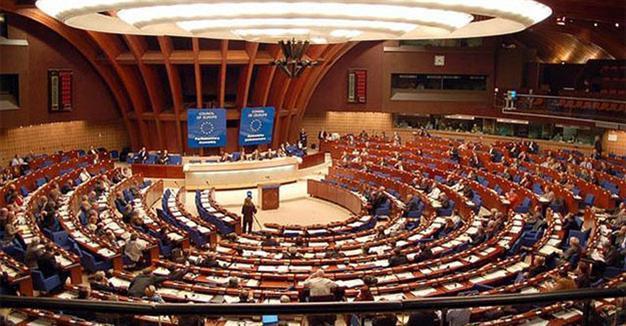Turkey consults on post-coup attempt prosecutions with Council of Europe

A delegation from Justice Ministry visited Strasbourg last week in order to brief the Council of Europe about post-coup attempt prosecutions in Turkey, Turkish Ambassador to the Council of Europe Erdoğan İşcan has said.
A working group came together “for consultations to develop compatibility in standards between Turkey and the Council of Europe,” İşcan told the Hürriyet Daily News.
The working group was formed in 2015 for “consultations in order to eliminate current problems in Turkey” and the last time the group gathered was in June, he said, adding that Ankara must accelerate its consultations with the Council of Europe following the failed July 15 coup attempt.
The Turkish delegation has informed the Council of Europe about practices in post-coup attempt prosecutions and the group will meet again after the Council of Europe’s assessment of the situation, İscan stated.
Çavuşoğlu to discuss cooperation with Council of Europe Foreign Minister Mevlüt Çavuşoğlu will also discuss the issue of cooperation between the Council of Europe and Turkey during his visit to Strasbourg on Sept. 7.
While Western governments and European institutions have denounced the coup attempt, they have also expressed concerns about the crackdown on opposition supporters in Turkey since the July 15 coup attempt.
“The staggering number of civil servants arrested or dismissed in such a short period of time following the attempted coup also raises serious questions regarding equity and due process,” the Council of Europe’s commissioner for human rights Nils Muiznieks in a statement in July.
Turkey temporarily suspended the implementation of its obligations emanating from the European Convention on Human Rights (ECHR), in line with the declaration of a state of emergency.
Article 15 of the ECHR stipulates: “In time of war or other public emergencies threatening the life of the nation, any High Contracting Party may take measures derogating from its obligations under this Convention to the extent strictly required by the exigencies of the situation, provided that such measures are not inconsistent with its other obligations under international law.”
 A delegation from Justice Ministry visited Strasbourg last week in order to brief the Council of Europe about post-coup attempt prosecutions in Turkey, Turkish Ambassador to the Council of Europe Erdoğan İşcan has said.
A delegation from Justice Ministry visited Strasbourg last week in order to brief the Council of Europe about post-coup attempt prosecutions in Turkey, Turkish Ambassador to the Council of Europe Erdoğan İşcan has said.